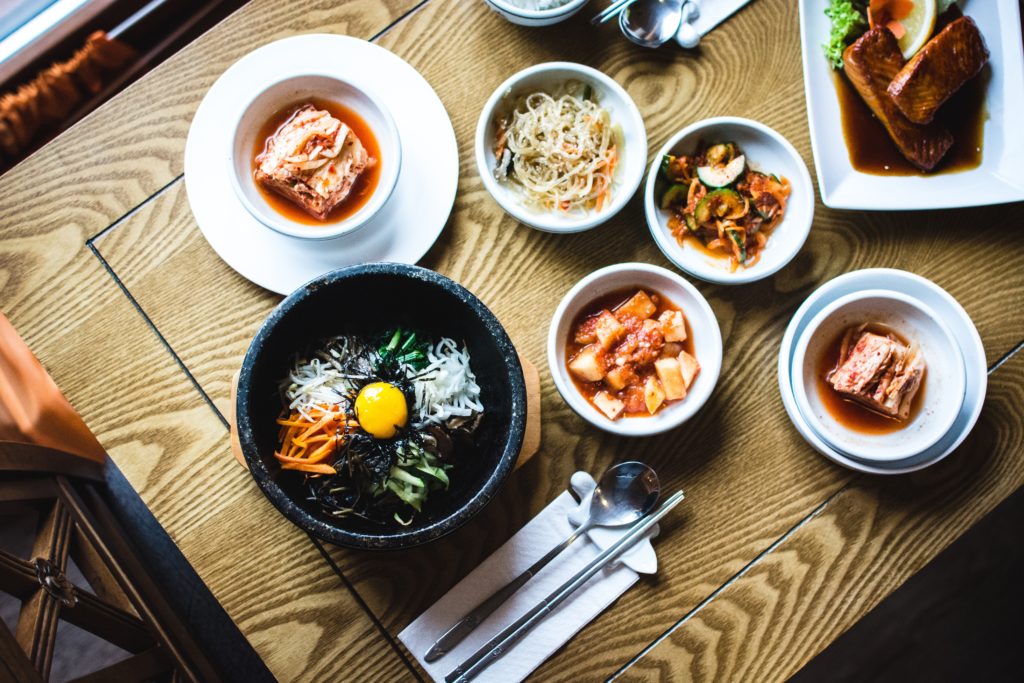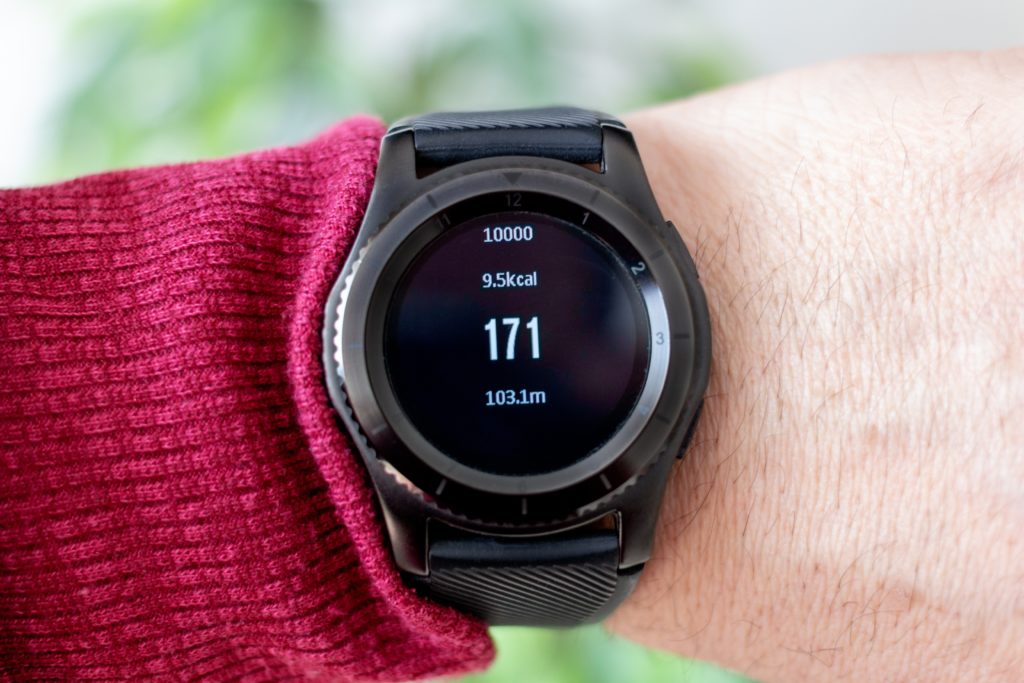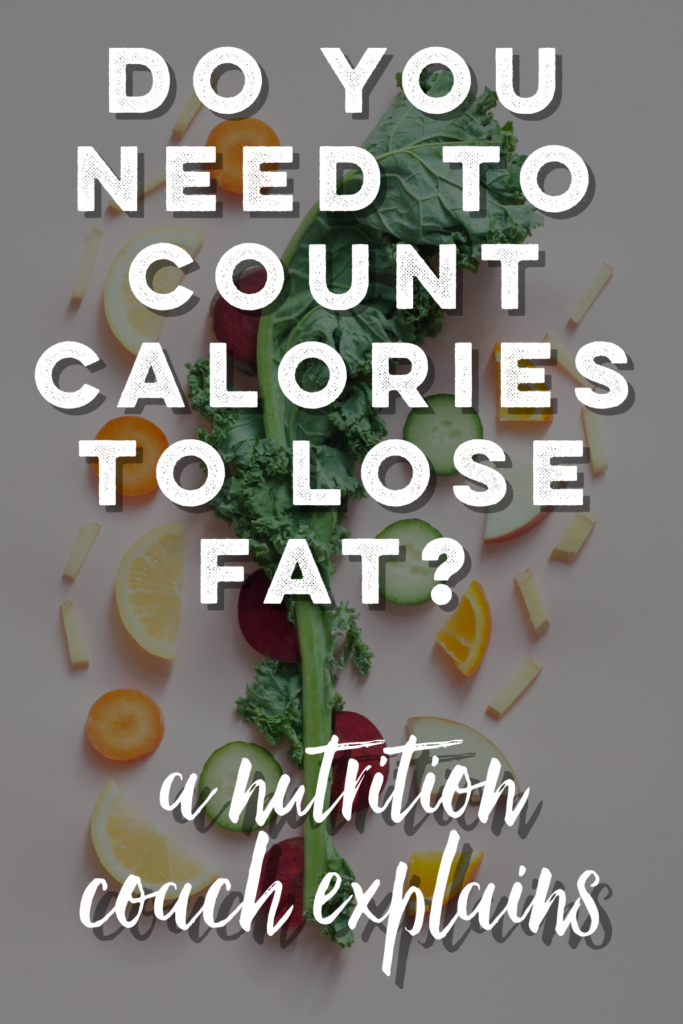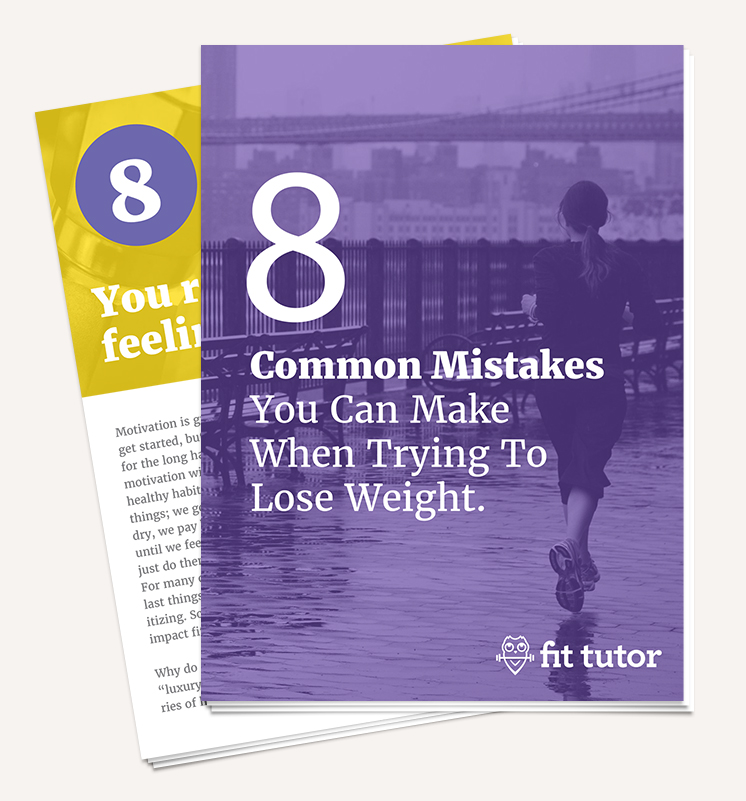Counting calories could be a tedious yet rewarding part of your fat loss journey, but that all depends on who you are. The process has been under fire lately for its exposed inaccuracies, yet we all know people who’ve counted calories and lost a lot of weight. Let’s dive into the benefits and the problems associated with counting calories to see if this is something you should do.
The Pros of Counting Calories
As I mentioned, we all have a friend who credits logging on My Fitness Pal alone to her 50 pound weight loss. There are clear benefits of counting your calories, so let’s explore those first.
Promotes Awareness and Honesty
I encounter many people who say eating healthily did nothing to help them lose weight. Unless there’s a problem with your hormones, most people should be able to alter their diets and achieve weight loss. Counting calories helps you be truly aware of what and how much you’re eating. Your “healthy” meal could be covered in 300 calories of salad dressing, or your portions could be enough for two people.
This practice brings people face to face with how closely they’re sticking to their dietary goals. It also helps them stay honest about their weight loss efforts, nutrition, and what they need to change. And for these reason, I love it!
Helps Make Portion Control Easier
Not that portion control is ever actually easy in a society that says bigger is better, but counting calories can help keep your portions under control.
I’m not going to claim that weight loss is as simple as calories in, calories out – I think there’s more at work- but controlling your calorie intake is a big part of it. Counting calories can help you be aware of your calorie intake and portions, which can help prevent excess energy intake. That’s a fancy way of saying eating too much ;)
Even if you don’t stick with calorie counting long-term, most people will learn lifelong lessons about portions that will help them make healthier, balanced meals.

Helps Limit Splurging and Cheat Meals
By keeping up with how many calories you’ve eaten so far each day, you’ll better understand how much a splurge will impact your overall goals. Sometimes we perceive sweets as harmless, and although I believe no food should be off limits, we can consume sweets more wisely, sparingly, or in better portions by checking their calorie content and factoring that in with what we’ve already consumed.
After working so hard to be mindful and keep your calories in check, you might think twice before consuming a cheat meal that could potentially undo every calorie saved this week. You can still splurge and enjoy your favorite foods, but after tracking the calories in them, you may opt for smaller portions or making a healthier version yourself!
Helps Ensure You’re Getting Enough of What You Need
“What you need” varies for each person, but most of the time the only way to make sure you’re getting what you need is to track it! This is another reason I think counting calories is valuable.
Our diet culture discourages women from eating enough calories to support their body’s functioning, let alone their workouts! The weight they are losing is muscle instead of fat, and if they ate a little more and made sure they got enough protein, then they’d reach their goals faster.
Another concern is getting in enough of a certain macronutrient. Protein intake, for example, is often low in women. Once you start working out, you usually need even more. Counting calories can help you track your protein intake to see what you need to eat more or less of. This can be applied to any macronutrient (fat, carbs, protein).
Even if your goal isn’t weight loss, you can benefit from tracking this way. Getting enough of the nutrients you need can boost your performance and recovery as well!
*How to Get an Accurate Calorie Goal*
If you calculate your caloric needs, make sure you’re including your activity factor in there as well. Your RMR (resting metabolic rate) is what your body needs for basic functioning. You should always consume at least that, otherwise you won’t be losing fat like you wanted to. In fact, you could actually be slowing down your metabolism.
You can use this online calculator.
Next, multiply this number by your activity factor to determine how much to eat:
- Sedentary (little to no exercise)= x 1.2
- Light Activity (light exercise 1-3 days/week) = x 1.375
- Moderately Active (moderate exercise/sports 3-5 days/week) x 1.55
- Very Active (hard exercise 5-7 days/week) = x 1.725
- Extremely Active (very hard exercise or physical labor 6-7 days/week) = x 1.9
- Side note: If you’re using MyFitnessPal, click on the “more” button in the right hand bottom corner –> Goals –> Activity Level –> choose yours from the drop down menu. It will automatically adjust your calories, but doesn’t use the exact same numbers I have listed here.
It’s a Good Form of Accountability
Although this ties in with keeping you honest, you’ll have these little numbers to keep you accountable to what and how much you’re putting into your body. It’s a great tool to show your trainer or coach your food log so they can make suggestions, and to be accountable to someone else for your intake.
Some people need accountability, and food logs can serve that purpose. You can even make your settings public or “friend” other people if your food log is online so others can keep track of your progress. Turning it into a little competition can help you stay on track, or consider setting up rewards for ____ amount of days within a certain calorie range to help you stay motivated!

It Works
My last reason is that no matter how inaccurate it is, it has worked for hundreds of thousands of people. It can be helpful data that drives and motivates a person, keeps them accountable, helps them be more aware, etc. Whatever the reason, it works. But not for everyone.
You may have hormonal imbalances or a personality that will be driven completely crazy by this process. It can be a helpful tool, but it’s not the ticket to success, so don’t feel bad if it hasn’t worked for you in the past or if you’re skeptical about trying it.
Before we discuss if you should or should not count, let’s talk about what’s wrong with calorie counting.
The Cons of Counting Calories
Although the list of pros may have convinced you, there are several drawbacks of counting calories. Although most have to do with someone’s personality, this first one is a big issue and why I rarely strongly suggest someone counts calories long-term.
It’s Not That Accurate
Although tracking this kind of data might feel like you’re really taking things into your own hands, the data itself isn’t that accurate.
It’s Based on Averages
The calorie counts you find on product or government websites or when you log something in My Fitness Pal consists of averages. And what is a medium sweet potato? Is medium to me the same as medium to the person inputting the data?
What you’re consuming could be over a hundred calories different- either higher or lower – which makes this not an extremely reliable method. It’s possible to count calories and still gain weight because of this imprecision.
Food Companies Calculate with Different Formulas
Food companies have 5 different methods to choose from to find the calories in their food/products, so calorie counts can vary for this reason, too. The FDA allows inaccuracies up to 20%. Yikes!
So, in theory, with the averages being different + the allowed error up to 20%, the calorie counts could potentially be up to 50% off.

We Don’t Absorb all the Calories we Consume
There are formulas used to estimate how many calories we consume based on each macronutrient, but often this is underestimated for fiber-rich foods, since we absorb a lot of their calories and nutrients, and overestimated for foods like nuts and seeds.
Cooking Foods can Change Calorie Content
Don’t misread this as encouragement to eat all your foods raw, but cooking them tends to make calories more available for absorption. Blending, chopping, and how you cook your food can all affect how many calories you absorb.
Each Person Absorbs Calories Differently
Your digestive tract and digestion are unique to you, so these formulas won’t be entirely accurate for anyone. You will absorb a different amount of nutrients and calories than I will, adding to the margin of error for the calorie counts.
Estimating Portion Sizes Isn’t Your Strong Suit
People are notoriously not that amazing at estimating their portion sizes and how much they ate, which of course would affect the accuracy of your calorie total at the end of the day. You can counter this by measuring food, but most people don’t have the time for this tedious added step.
It’s Tedious
This is the biggest complaint I get from clients when they sign up. “I do not have time to count my calories so don’t even try.”
I hear ya, and this is why I’m inconsistent with it as well. Entering in each bite of food you had, after estimating how much you ate and choosing which representation of it in the database matches most closely with what you ate can be laborious. It’s mentally draining and can be time-consuming, so many people don’t stick with it.
Not all Calories are Created Equal
If your goal is to eat 1600 calories per day, you could easily eat that in ice cream. You could also get those calories in via protein and veggies. Although you’re eating the same amount of calories, your body won’t benefit from and respond in the same way if you get all your calories from sweets instead of a well-balanced meal. Making sure your body gets what it needs nutrient-wise will help you feel good, energetic, and can even speed up your weight loss.
Although this is an extreme example, you get the picture. Total calories consumed matters, but the quality of calories consumed also plays a role.
It’s Easy to Obsess Over
It’s so easy to get caught up in and obsess over the numbers. Before you know it, you’re looking at food and seeing numbers, telling people how many calories are in what they are eating (that’s not a way to make friends, people), and constantly strategizing over the calories in what you’re eating vs. how many you burned that day.
Your brain deserves to think about something more than this, something more life-giving. If you have an obsessive or perfectionist mentality, or have a history of an eating disorder, then calorie counting might not be for you.
Do You Need to Count Calories to Lose Weight?
So back to our original question, I think you can assume you don’t need to count calories, but it really can be helpful for some people. After reading the pros and cons, what do you think would be best for you?
If you won’t obsess over it and don’t find it too tedious, it’s a good option. I think it’s such a valuable tool to keep people honest and accountable about what and how much they’re eating. For that alone, I would suggest people do it occasionally. The struggle with portion control is a big reason why people have trouble losing weight, and although there are huge inaccuracies with actual calorie counts, I think it’s helpful for people who won’t find it stressful or become obsessive.
In my next post, I’ll explain how I use calorie counting with my clients so you can try to use it in a healthier, more effective way on your fat loss journey!
Free Meal Plan Alert: Also, you can download my Real Food Reset Meal Plan that has all of the calories already tallied for you! All you’ll need is to adjust the serving sizes as needed!
This is My Biggest, Bestest Tip for People Wanting to Lose Weight:
Follow the advice in this linked article and get results!
I’d love hear how you feel about calorie counting. Have you found it helpful? Too time-consuming? Is it something you use regularly or not at all? Tell me in the comments!
PS: I offer Online Personal Training and Nutrition Coaching that includes personalized meal plans that will help you track calories, stay on top of your groceries and meal prep, and eat real food that tastes good. Check out the options here!



Comments are closed.